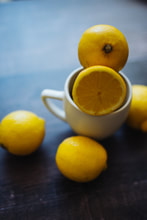 Restrictions have eased and Autumn is just around the corner, so now is a good time to think about how to boost your immune system and fight off disease. Your body takes time to adjust to new routines, so you do have to think ahead. Your immune system does a very efficient job of defending you against disease-causing micro-organisms, but it’s not fool-proof. So can you boost your immune system? And if so, how. Your immune system is not a single entity, it’s a system with different elements which have different functions. And to function well, it requires harmony and balance but currently there is no scientifically proven direct link between lifestyle and enhanced immune function. And what does boosting the immune system actually mean? Having more immune cells is not necessarily better, but a more robust immune system might be useful. So how might you achieve a more robust immune system? A healthy lifestyle makes sense as a way to support immune function because every part of your body, including your immune system, functions better when protected from environmental assaults and bolstered by healthy lifestyle strategies such as:
1 Comment
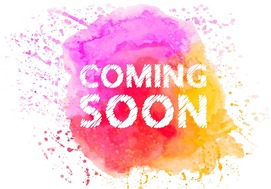 I can't tell you how excited I am to announce that Lothian Reflexology will be re-opening after lockdown on Monday 26th April. It's been a long time coming and already the diary is filling up fast. Appointments will be limited to allow time between clients for cleaning and ventilating the room, so already there's a bit of pressure for slots. If you'd like to book a treatment you can do so HERE. I've not been idle in the break and I've managed to pack in loads of specialist training, particularly with regard to Migraine and Headache, Long Covid and Fertility. So I'm raring to go and get some practical application of the new techniques. I'm absolutely delighted to be up and running again and very much looking forward to seeing all my lovely clients again. Woo Hoo! Can't wait! With 2021 less only a few days away, my focus is on the future rather than the past and as a result the topic for this post is my January Self Care Challenge.
Each day in January on my facebook page, I'll be posting one small thing you can do to support your self care and mental health - and it's not about diet and exercise! Please like my Facebook Page and join my January Self Care Challenge. If you meet the challenge every day - and some of the activities will only take a few minutes - you will have reached the end of the month with 31 self care activities under your belt and you will hopefully have developed the habit of doing something every day that improves your ability to care for yourself. In the current environment of remote working, covid uncertainty and restriction, political uncertainty and short winter days, it's even more important than ever to look after yourself. Self care is like putting on your oxygen mask first, so that you are fit to look after others or making sure your (energy) bank account is in the black, so that you don't go bankrupt. Self care is like brushing your teeth - you need to do it every day to get rid of the plaque - those sticky mental, emotional and physical deposits - that come to you as you go through your day. Like brushing your teeth, daily action minimises the damage and makes it easier to keep in tip top shape. I'm also offering a freebie this month in the form of my 7 Day Self Care Guide. This guide gives you an activity every day for 7 days that will allow you to zero in on your own specific needs when it comes to self care. It looks at: how we manage our energy and how our relationships feed or diminish our energy; how saying "No" can improve our lives, create time and empower us; what we would benefit from letting go and how letting fo can improve energy, self care and our lives in general; and formulating a plan as to how you want to move forward towards greater self-care. If you'd like to download my FREE 7 Day Self Care Guide you can sign up HERE. And it's not about what diet to follow or the best exercise for this firming this or shedding that, rather, it's about your relationship with yourself -and I have to say that some parts you may find challenging. And if you complete the 7 Day Self Care Guide AND do the daily facebook challenge you can 100% call January 2021 your self-care month. 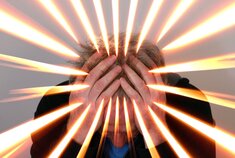 Over the years I've been lucky enough to help a number of headache and migraine sufferers, in fact it was one of my first successes as a Reflexologist, just after I qualified. As a nervous new practitioner in 1998 I had a local resident come to me with recurrent headaches. I treated according to my training and suggested, if she was still having problems, that she return for another treatment. I thought she would go away, realise how lovely the treatmet was and book another, but I never heard from her. Then a few years later she booked another session. She had taken my at my word - the headaches had disappeared after that one Reflexology session and it was only then, a couple of years later that she had another cluster of headaches and returned for a Reflexology session. I have since had a number of successes over the years: one client with a very demanding job, was getting 3 migraine a week and we eventually reduced that to one every 3 months; her daughter suffered from cluster migraines and found Reflexology helpful; another client had almost daily headaches as a consequence of neck problems and found Reflexology sessions gave her some relief. And recently I've had a client who has had increasingly regular headaches and migraines and has found Reflexology to provide some relief. There are no guarantees of course and very little substantive research has been done, but my observations and experience suggest that Reflexology should be the go-to treatment if you suffer from Headache or Migraine. There may of course be food triggers - I had one client who (eventually) discovered that it was ice-cream which was the trigger - we think it was the sugar and/or fat rather than the cold that did it. One of the interesting things about Migraine from a complementary therapy point of view is that it is connected to the gallbladder meridian in Traditional Chinese Medicine. This is because the gallbladder meridian ends around the back of the ear in the head - and in alopathic medicine the gallbladder organ is responsible for producing bile to break down fat in the body. Surely not just a coincidence? The one area where migraines can be more problematic are when they are hormone related. A lot more patience and commitment may be required as hormone levels fluctuate, but because Reflexology is designed to create balance in the body, that can support the body to modulate hormone levels to create less fluctuation which will hopefully have a knock-on effect on migraine and headaches. I tried to find some scientific evidence, but it's thin on the ground (and can be very expensive to access). I found this report on a 2018 study written by Sally Robertson BSc in News-Medical.Net an American website. This article reported on the results of a placebo-controlled clinical trial assessing the effect of reflexology massage on nitroglycerin-induced migraine-type headache. This type of headache is the main side effect of nitrate therapy, which is used to treat angina. The trial assessed the effects of reflexology massage on 75 coronary care unit patients who were divided into an intervention group, a placebo group and a control group. The intervention group received two 20-minute massages (separated by a 3-hour interval) of the upper part of both foot thumbs, which in reflexology, is the reflection point of the head. Among the placebo group, an unspecified part of the heel unrelated to the head was massaged and the control group received neither massage. The study revealed a significant between-group difference in mean pain scale that suggested a reduction in the intensity of headache when reflexology massage was applied. But really, if you suffer from Migraine or Headache the only way to know is to give Reflexology a try. If you don't suffer from Migraine or Headache, lucky you - but please spread the word to your less fortunate friends, family or colleagues. 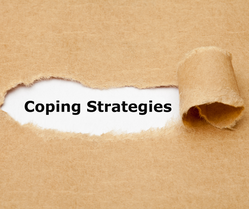 This COVID-19 crisis has radically changed our lives. Just a few months ago, we had no idea our 'world' would be confined to our homes! It's a powerful reminder of how important freedom is - and how much we need human connection! Remember you are not alone. Because what is DIFFERENT here is that everyone is impacted! Your neighbour, parents, boss and friends as well as your counterparts around the world are all going through something similar. So, it's important to remember: Everything can be taken from a man but one thing: the last of the human freedoms - to choose one's attitude in any given set of circumstances, to choose one's own way. Viktor E. Frankl This is the challenge each of us must rise to! If we're going to be stuck at home, we may as well make the most of it. Here Are 15 Things You Can do to Make Your Life Better while Physically Isolated: 1) Create a Healthy, Supportive Routine When we feel powerless or helpless (as so many of us do at the moment), one EXTREMELY easy thing to do is to create a routine or schedule. While we're all stuck in anxiously waiting at home, it's easy to lose our sense of time. Days can begin to blend into each other. A routine can give us an anchor and greater sense of control over our lives. And if you have children, creating a routine is especially important to give them a sense of normality. This routine or schedule can be as simple as:
2) Build Your Physical Strength, Fitness Levels or Flexibility! Building your physical strength is powerful and health-boosting! Not only is physical strength and flexibility life-affirming and good for our health, but feeling more physically powerful actually helps us feel more empowered and less helpless in life too! So add some physical activity into your schedule - as little as 15 minutes daily. Maybe by the end of this you'll be fitter or even be able to do 10 (or 100!) press-ups! There are many options to boost your physical strength and health. Here are some ideas:
3) Learn with Non-Fiction Books Use this time at home to educate yourself with non-fiction books. There is so much to be gained - like self-confidence, negotiation skills, health (sleep, nutrition), how to have difficult conversations and much more. What keeps you up at night? There's probably a book about that! What do you wish you were better at? There's probably a book about that too! Here are some book ideas to get you thinking:
4) Gain a New Skill with Online Learning There are so many opportunities online to gain a new skill and they're growing by the day! Grow your personal or creative skills or choose a new skill to learn and take back to work with online training providers like Coursera or Udemy. There are many other providers. If there's a skill you always wanted to learn, search for it. But be sure to read the course descriptions thoroughly, check reviews if there are any - and check money-back guarantees as you need to! And with so many learning options ranging from FREE to tens of dollars to the low hundreds of dollars, there will be something out there just perfect for you. 5) Explore your Life Vision Rather than watching endless news streams, you can choose to focus on a bigger picture - your future. What do you want from the rest of your life? What would you be disappointed you did NOT do? Where do you envision yourself in 10 years? Having a clear vision of how you want your life to be is a powerful motivator. A vision helps us work towards our goals, take action and make change. Soon, we'll all be super-busy again - and a vision might be just what you need stay focused! Here are 5 questions to ponder or journal around to go deeper:
6) Be in the moment In THIS moment you are OK. You are safe. Take one day at a time. One hour or even one breath at a time if you need to. This tip is about being super-present, not thinking ahead or remembering the past, but practicing BEING. This is a PRACTICE - meaning you will have to do it over and over again - bringing yourself back to the NOW. Over time it gets easier, and it's a great skill to have to take back to "normal" life. So when you notice you're worrying, feeling twitchy and want to pick up your device and find out what the "latest" is about the COVID situation, say to yourself, "It's OK. In this moment, I am safe. In this moment I am OK." You can also add or say, "In this moment, my children/husband/family are safe." EXTRA TIP: Reduce or minimise how often you watch and read the news! And DON'T read or watch the news (or articles about COVID-19 or similar) just before bed! 7) Laugh Distracting ourselves from our fears is a valid technique for feeling better! Laughter releases helpful chemicals in our bloodstream - Endorphins (our natural "happy" drug) and Dopamine (part of our bodily "reward" system).
8) Start a Journal! If you've always wanted to journal, now is a good time to start. More than just keeping a record of your day, a journal can help you explore and sift through your feelings and experiences and learn from them. It's a great way to get to know you. It's great to choose a beautiful notebook, but the most important thing is to just get started. Here are some prompts to get started with:
You may find this How to Journal article from the IAJW (International Association for Journal Writing) helpful to get you started. 9) Be Kind! Kindness and compassion are one of the most powerful tools any of us have in our toolbox right now. Many of us are largely housebound, never mind the fear that you or a loved on might actually catch the COVID virus! So, of course we're going to feel unpleasant and weird.
10) Help Others Helping others is empowering and makes us feel better. Here are a few ways you could help others.
11) Live Your Values When we know your values, we understand what motivates and drives us. When we build our lives around our values, we create a life that is meaningful. Finally, when we align our actions with our values - we're being truly authentic. It's a very satisfying and fulfilling way to live. And living your values could be the single most important thing any of us can do right now. Here's an exercise you can do:
If Covid-19 is causing you to feel trapped in a job you don’t like or wanted to change, this values exercise can help you make the most of the job you’re in. Find ways to make your job fit your values. For more help with this check out my Life Purpose Programme. 12) De-Clutter I bet you have some organizational things on your to-do list (like going through winter clothes, sorting out toys to donate or tidying the laundry closet, garage or shed) that have been on there for a while. Use this isolation period to get them done! Getting organized and de-cluttering allows us to exert some control over our lives - and therefore feel less helpless! Plus it'll feel amazing just to have it done. Organize your closets, your garage, your books, your photos, office, kitchen equipment. Whatever needs organizing. Or perhaps you need to go through your receipts or file your taxes!
13) Grow Something - Or Get an Indoor Flowering Plant! There is nothing quite like growing something - whether it's flowers, fruits or vegetables that makes us feel good! Even if you live in an apartment and you could grow fresh herbs on your windowsill or balcony to cook with!
* Be aware that some plants are poisonous to pets - so please check. 14) Send "Real" Snail Mail Letters or Cards - Go old-fashioned Who doesn't love to receive a lovely card or handwritten letter in the post box! Rediscover the lost art of letter-writing and make someone's day. Yes, you could send an email appreciating someone, and that's great. But imagine your recipient's face as they pick up that hand-written card in the mailbox. Wondering what to say? Write from the heart! Here are some ideas to get started:
15) Begin a Meditation Practice Meditation is a practice that has been proven scientifically to calm us, help us be more creative and be happier (for starters). It's extremely beneficial. There is a lot to learn about meditation - and it's called a Meditation Practice for a reason. But it's also not as hard as it sounds. You can start with as little as 5 minutes a day - and it's good to build a routine, so you meditate at the same time every day. Get a book on "Meditation for Beginners" or go to Youtube or Google and search for "How to Meditate". Another good place to start is "Metta" or "Loving Kindness" meditation. Again, search online and you'll have lots of options to choose from. It helps to have a quiet space without interruptions - which many of us don't have at the moment. And for some people, trying to meditate when anxious can be stressful. If this is the case, listen to a relaxing guided meditation instead. Another idea is to listen to a sleep meditation or "Body Scan Meditation" before going to sleep. Wrap-upSo, which of the above ideas resonated with you? The areas I am focusing on are Fitness and Decluttering: I’m doing a 20 minute cardio workout and a long walk every day and I can now walk from one end of my garage to the other, Woo Hoo! Believe you have the skills and power to tackle this situation and you will! Choose to make the best of a difficult situation and no matter what - you'll find a way. This current and strange COVID-19 situation will end. And when it does, you'll be proud you made the effort to learn something - whether it's about yourself, fresh knowledge, a new skill - and who knows what else! Doris Wylie, Lothian Reflexology & Life Purpose Programme 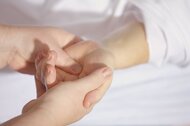 Touch therapies have never been more important. Coronavirus and all the fear and uncertainty that it brings, along with remote working and job insecurity increase stress levels and undermine positive mental health. It just seems so much to cope with all at once. And the truth is it's never been more important to reducing stress because stress makes you sick, exhausted and depleted both mentally and physically. And importantly in these days of Coronavirus, stress negatively impacts your immune system. So, even if your eating well; even if you're exercising regularly; even if you're getting plenty of sleep and feeling fit and healthy, chronic stress will undermine all your efforts. Social distancing and remote working mean that the informal support that you got from colleagues has gone: the water-cooler moments; the vent your frustration moments; the brainstorming ideas moments; and all those other informal interactions that help get you through the day, because Zoom or Microsoft Teams just isn't the same. Of course, you avoid the negative interactions too, which must help a bit. And the support you get from friends and family might be limited at the moment too. It doesn't matter who you are or how resilient, we are living in much more stressful times than at any time in the past 70 years. Which makes self-care increasingly, touch therapies and managing mental and physical health ever more important. A Reflexology treatment can give you an opportunity to stop and allow you to notice how you feel, to see the stresses and strains that are present in your life and to listen to your intuition as to how best to reduce the intensity of those stressors. The relaxation that you will receive from a treatment will stop all your stress in it's tracks, because you can't be stressed and relaxed at the same time. By giving yourself permission to stop, you give yourself an opportunity to restore some balance to mind, body and emotion. And by allowing someone else to take the strain, even for just an hour, you give yourself permission to switch off completely, and that can't be a bad thing. Often when we're stressed our mind runs the show, over-riding helpful signals from our body. If we lose touch with those helpful signals from our body, like tiredness, tension, thirst, hunger, or eye strain, we may be setting ourselves up for more serious conditions down the line. Touch therapies allow you to tune into your body and help to restore the mind/body balance: they help you develop awareness of what is happening in both mind and body and that's essential, because without awareness, nothing will change. Give yourself a break, book a relaxing Reflexology treatment today. 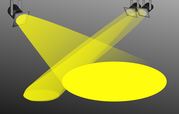 I've rediscovered twitter and found myself getting quite worked up about what's been going wrong in the world, inaccuracies, political spin and generally descending into grumpiness. And then I got this email from Edward Vilga, author and yoga teacher ..... "It was during the innocent summer of 2015 that, after seeing some downtown theater, I walked for a bit in the balmy June night before hailing a cab. My crusty driver began our ride barking, “Can you pay in cash?” (For those not in NYC, all cab drivers are required by law to take credit cards.) The driver then launched into an extended, spicy monologue about corruption and the credit card companies and the 1%-ers and various conspiracy theories, about well…everything. He went on about how he’d been driving for 30 years “in this hellhole that gets worse every year.” In contrast, I was thinking that NYC had never looked more beautiful than on this June night and tried to interject something positive. He countered by insisting that even the street lights had become dimmer. I replied, “Really?” gazing out on 9th Street and 6th Avenue and thinking about how delightfully romantic and bright everythinglooked. He asked me how long I’d been in NYC. I answered, “Since college.” “And you haven’t noticed that the streets are much darker than they were years ago?” I said, “To be honest…not really.” And then I added something like, “Well, 30 years is a long time to be driving” or something equally bland to which he replied, “Listen, you’re playing Devil’s Advocate. I think this conversation is degenerating so it’s over.” And then he was silent for the 15 minutes it took to drive me home, his interesting jazz fusion mix playing from the front seat. But here’s the thing: in the back of the cab, I googled “streetlights dimmer NYC” and learned the opposite is true. NYC was and is actually getting brighter…much brighter. ( I also realize I'm sending this on the day after the Summer Solstice, the brightest day of the year.) Anyway, five years ago, in 2015, we were in the beginning of the world’s largest city-wide light replacement project with brighter, clearer LED bulbs everywhere. Now there are even complaints about how the street lights are TOO BRIGHT. My cabbie’s worldview was so committed to the darkness increasing that he was blind to the fact that things are truly getting dramatically brighter. Why am I thinking of this now, in the chaotic mess that 2020 seems to be? It’s because I’d like to think this is also what’s happening right now. After all, the light’s job is to expose the darkness–– and there’s definitely a lot of darkness that needs to be exposed–– But perhaps, it’s also an inevitable part of moving us forward. In some ways, it’s the same as when you decide to upgrade something in your home (say a chair in your living room)… And then realize that the rug underneath is frayed should probably be replaced… And then once that’s done, the sofa suddenly looks shabby and then…. Well, before you know it, you’ve completely redecorated. Maybe that’s what’s happening now. Things aren’t getting darker…they’re getting brighter. And that reveals many beautiful things, and simultaneously, how much cleaning up we still have to do." Edward Vilga ...... So I've decided to give Twitter a side-swerve (that echo chamber is really too seductive), focus on how I can make a positive change in my life now (which is all we really have) and be grateful for the image of the redecoration metaphore, I found it really helped put things in perspective for me. I hope you do too. 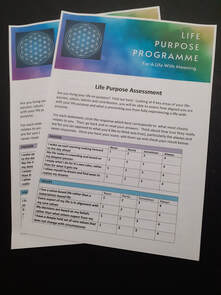 Prior to lockdown I'd just completed a Life Purpose Coaching qualification and I've taken advantage of the spare time to develop an online programme. How purposeful is your life? I've put together a wee quiz to help you determine how close your current life is to fulfilling your life purpose. Just click on the link above for your Life Purpose Assessment. Now I know at the moment many people will be worried about their jobs and will be in survival mode, while others will be working even harder than usual and trying to adapt to working from home. So my timing may not be great! But I do think that life as we know it has changed (at least for the next few years) and what better time to consider life purpose than when life itself seems under threat. For the people who now feel trapped in a job they don't much like, looking at life purpose can give them a way to make the most of a less than ideal situation by finding more meaning in the life they have. For the people who are having to re-think their career path because their industry has been decimated by the pandemic, looking at life purpose before they embark on a new career direction could mean the difference between a life of drudgery and a life of authenticity and meaning. Discovering your life purpose doesn't mean you have to re-arrange your life instantly to fit your purpose - you can choose how and when to bring more purpose into your life. But if you haven't worked out your life purpose you rob yourself of that choice. Help Please ... Because it's a new part of my business, I wonder if I could ask you to help me out by liking my Facebook Page. And if you know anyone who might be searching for their life purpose, please point them in my direction. I can offer online 1-1 support (via Zoom or Skype) and I've also created an online the Life Purpose Programme course for download. And I'm ideally placed to be coaching life purpose, because I've been there, done that and got the T-shirt! My late 30's saw a radical change of career and lifestyle and now my early 60's is seeing another transition - if I'm running in 30 year cycles, I wonder what my 90's will bring? My advice most certainly is not to wait too long before you begin to wonder what you're actually here to do - it's never too soon to start revealing your life purpose. |
|
